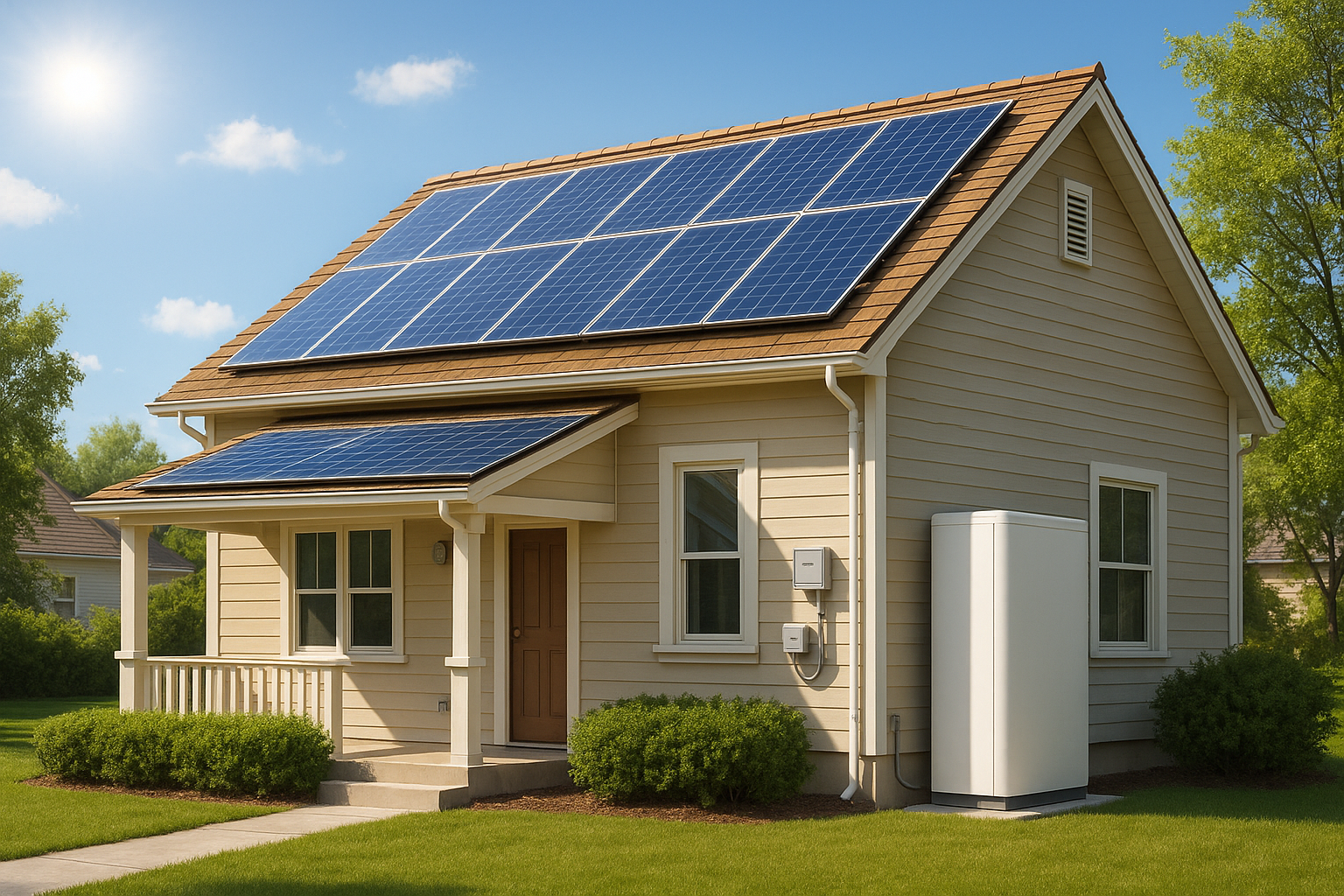Investing in solar energy for your home offers more than just environmental benefits. It is a strategic financial decision that can significantly impact your property's value and your long-term savings. Understanding the financial aspects, often called "payback math," helps you see the clear advantages of going solar. This includes assessing the return on investment (ROI) and how solar systems enhance your home's market appeal.
The Financial Benefits of Solar Energy
Solar power provides tangible financial gains, making it an attractive upgrade for any homeowner. These benefits extend from immediate savings to long-term financial security.
Reducing Electricity Bills
One of the most direct benefits of installing a solar system is the drastic reduction in your monthly electricity bills. By generating your own power, you become less reliant on grid electricity. This means you pay less to your utility company, or even nothing at all, depending on your system's size and energy consumption. Installing battery storage systems alongside distributed solar PV can effectively increase self-consumption. This also reduces reverse power flows into the local grid by shifting the produced energy.
Understanding Solar Incentives and Tax Credits
Governments and local authorities often provide various incentives to encourage solar adoption. These can include federal tax credits, state rebates, and net metering programs. For example, the United States has introduced policies like the Inflation Reduction Act. This provides tax credit extensions for solar PV and investment tax credits for battery storage. These incentives can significantly offset the initial cost of installation, making solar more accessible and improving your overall ROI.
Solar Energy and Home Property Value
Beyond saving on bills, solar energy systems are increasingly recognized as valuable assets that boost a home's market worth.
Documented Value Addition
Research consistently shows that homes with solar panels sell for higher prices than those without. As solar energy's popularity grows, it changes how people buy and sell homes. Solar has been found to consistently add value to homes. For instance, new data standards enable real estate agents to include details about solar-powered properties in listings. This provides millions of Americans the opportunity to easily buy and sell solar properties. Clear information on a home's solar energy system, such as age and ownership details, helps buyers make informed decisions.
Buyer Perception and Market Demand
Today's homebuyers are often looking for homes that offer lower operating costs and a reduced environmental footprint. A home equipped with a solar system signals energy efficiency and modernity. This can make your property stand out in the market and attract a wider pool of potential buyers. The long-term savings on utility bills become a significant selling point, making the home more appealing and justifying a higher asking price.

Calculating Your Solar ROI and Payback Period
Understanding the financial return of your solar investment involves looking at specific metrics.
Key Metrics for Evaluation
The Return on Investment (ROI) measures the profitability of your solar system. You calculate it by comparing the total financial benefits (savings + incentives) against the initial investment cost. The payback period is the time it takes for your cumulative savings to equal the initial cost of your solar installation. For example, if a system costs $20,000 and saves you $2,000 per year, the simple payback period is 10 years.
Factors Influencing Payback
Several factors influence how quickly your solar system pays for itself. These include the initial cost of the system, your average electricity consumption, the prevailing electricity rates in your area, and available incentives. Higher electricity rates and generous incentives generally lead to a shorter payback period. The size and efficiency of your solar panels and the quality of your solar inverter also play a significant role.
| Factor | Impact on Payback Period | Notes |
|---|---|---|
| Initial System Cost | Higher cost = Longer payback | Includes equipment, installation, and permits. |
| Electricity Rates | Higher rates = Shorter payback | Varies significantly by region and utility. |
| System Size & Efficiency | Larger/More efficient = Shorter payback | Matches energy production to household needs. |
| Available Incentives | More incentives = Shorter payback | Federal tax credits, state rebates, local programs. |
| Energy Consumption | Higher consumption = Shorter payback | More electricity offset by solar means greater savings. |
Integrating Energy Storage for Enhanced Value
Beyond solar panels, incorporating energy storage can further amplify the benefits and value of your solar investment.
The Role of Battery Storage
Battery storage systems, particularly those utilizing advanced lithium iron phosphate (LiFePO4) batteries, offer high performance, safety, and reliability. These systems store excess solar energy generated during the day for use at night or during peak demand periods. This increases your energy independence and maximizes self-consumption of your solar power. Battery storage systems can effectively increase self-consumption and reduce reverse power flows into the local grid by shifting produced energy. A home energy storage system, which integrates lithium batteries, a hybrid inverter, and solar panels, provides a complete solution for managing your home's energy.
Off-Grid Solutions and Resilience
For homes, farms, or remote cabins, off-grid solar solutions offer complete energy independence. These systems, often paired with robust battery storage, ensure a continuous power supply even without a connection to the utility grid. This provides unparalleled resilience during power outages and significantly enhances the property's self-sufficiency, adding unique value for specific buyers.
Your Path to Energy Independence
Embracing solar energy is a decision that brings both immediate financial relief and long-term appreciation for your property. By understanding the payback math, leveraging available incentives, and considering integrated solutions like battery storage, you are making a smart investment. You gain not only energy independence but also a more valuable and resilient home. Our years of experience in the solar industry are dedicated to providing reliable and scalable energy solutions, helping you achieve true energy independence.





Leave a comment
All comments are moderated before being published.
This site is protected by hCaptcha and the hCaptcha Privacy Policy and Terms of Service apply.